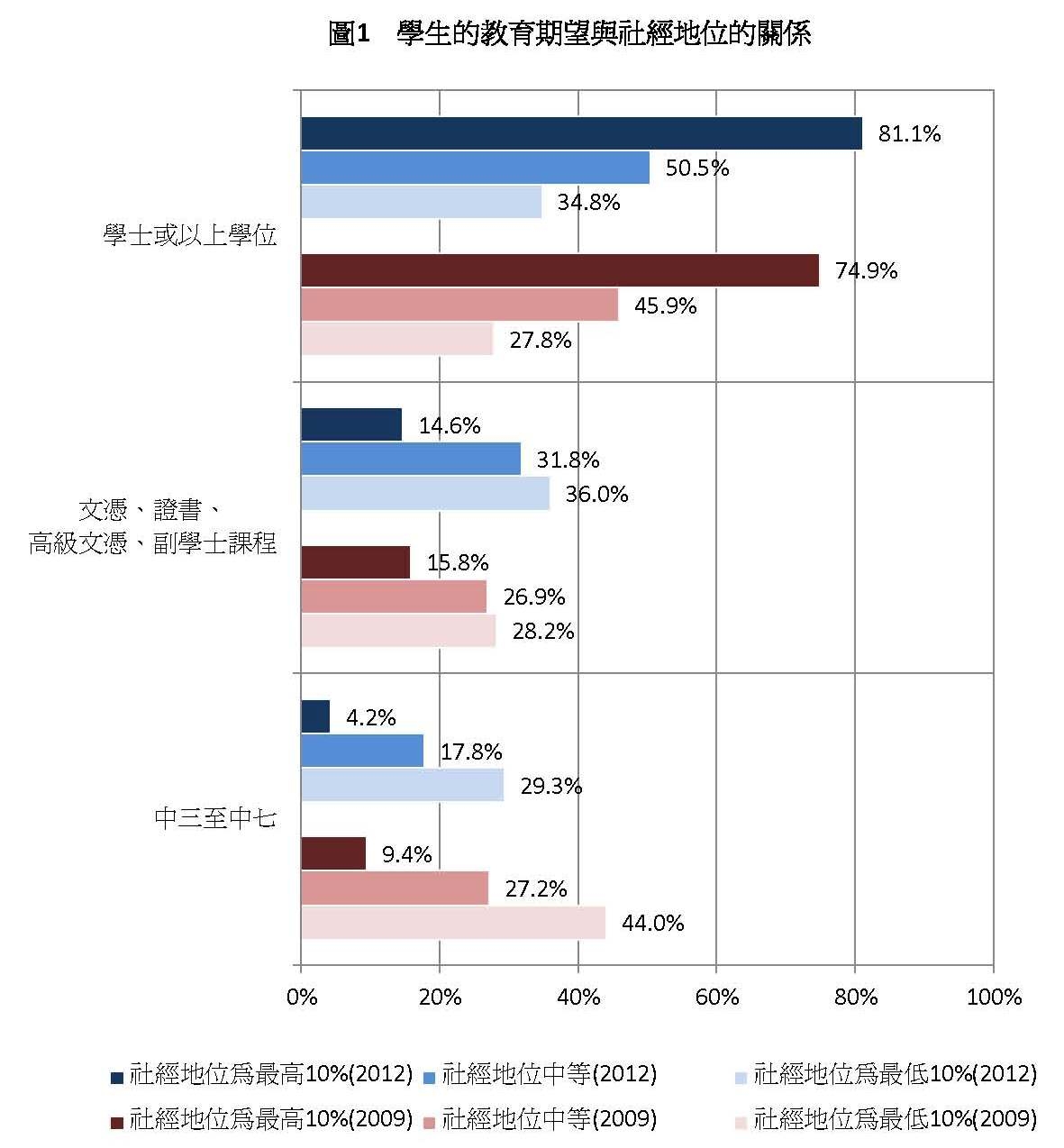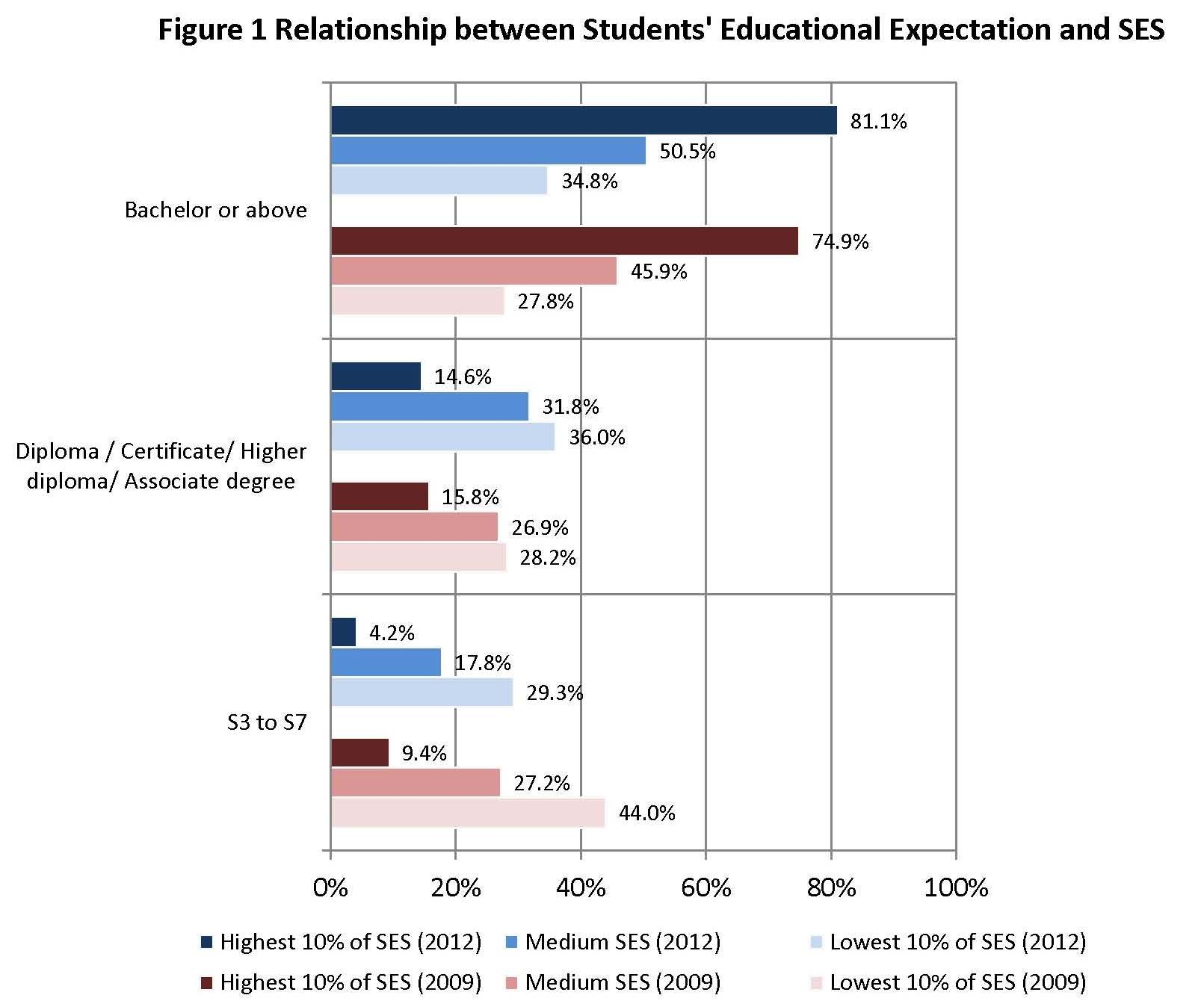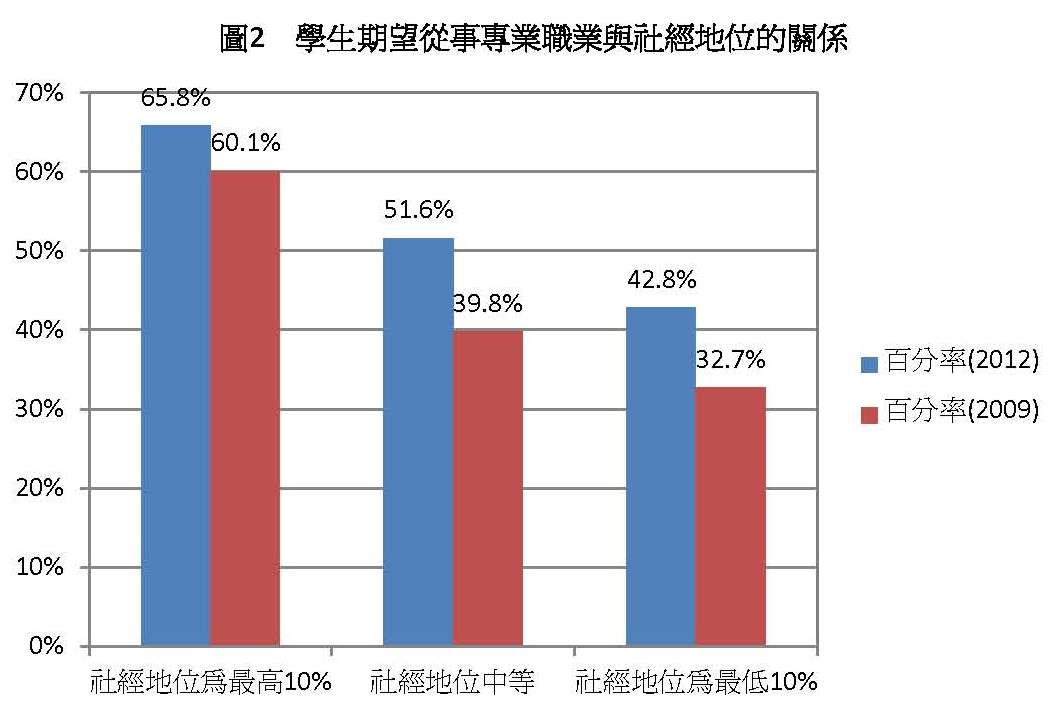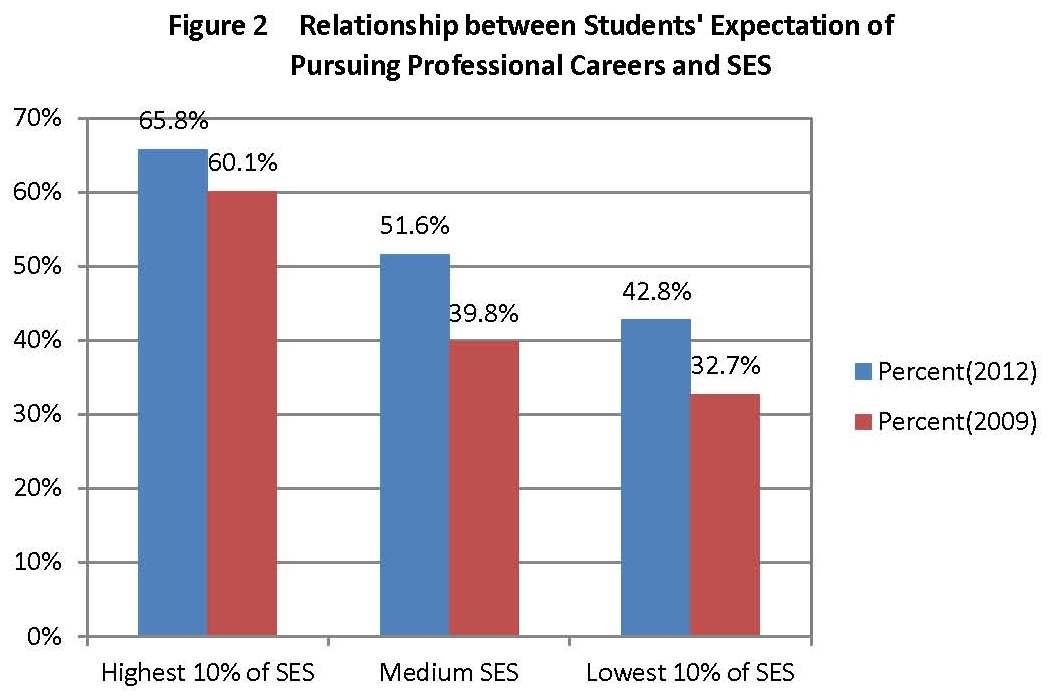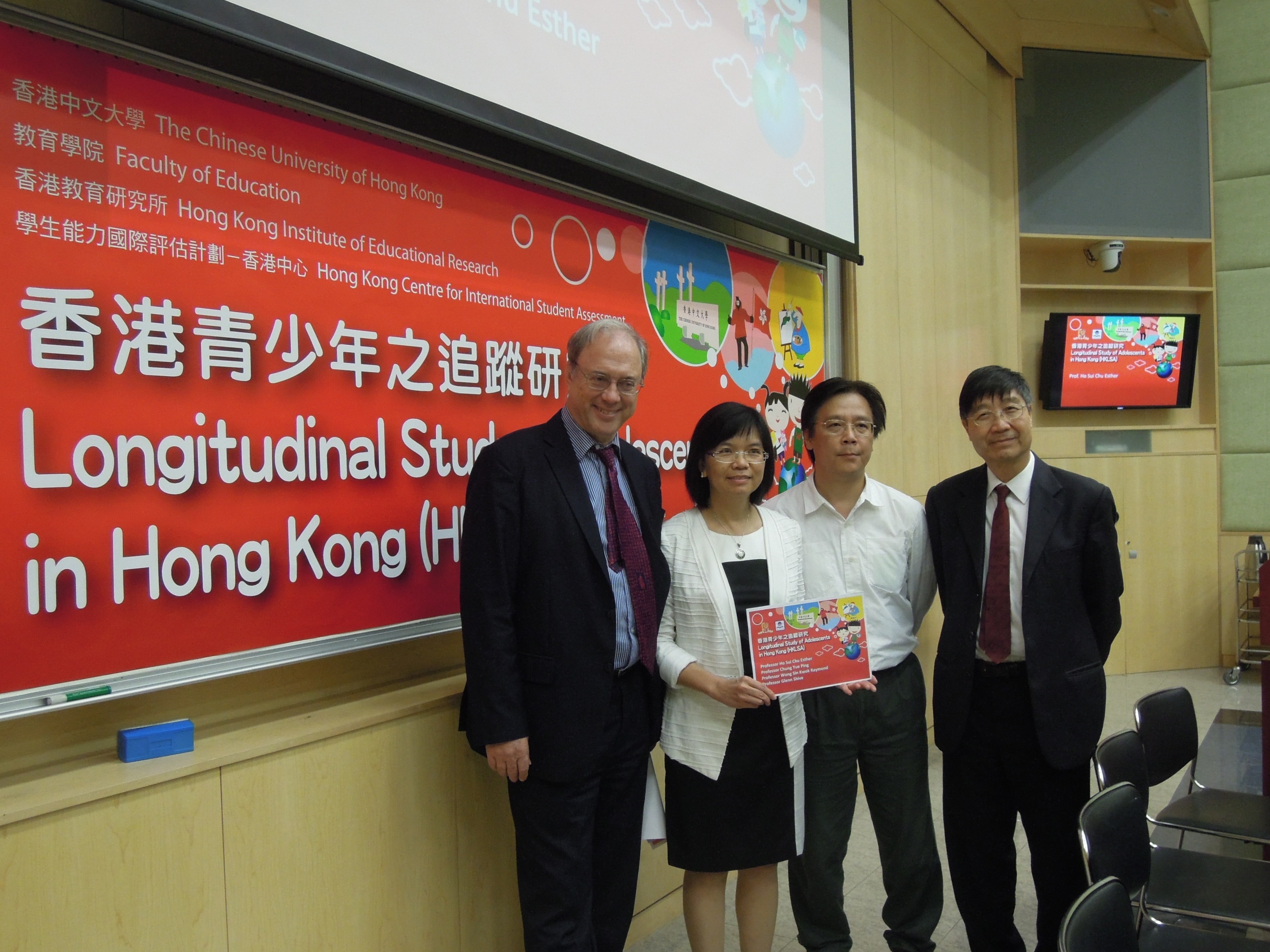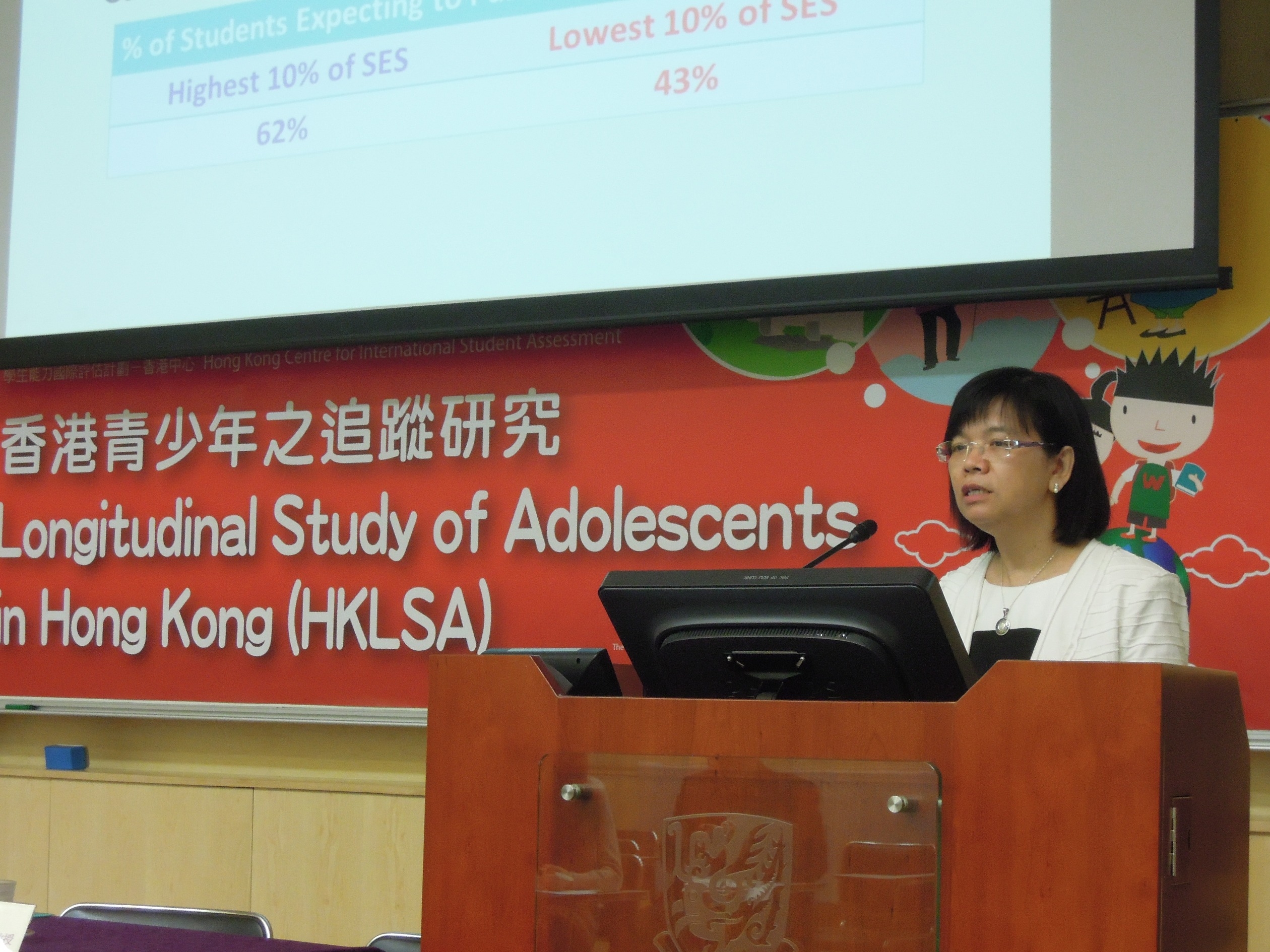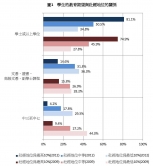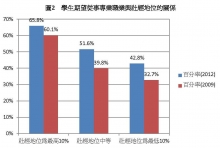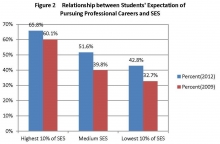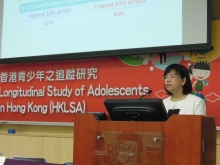CUHK
News Centre
HK-PISA Centre of CUHK Launches the ‘Longitudinal Study of Adolescents in Hong Kong’ to Analyze Students’ Educational and Career Expectations
With the aim of understanding the expectations for future education and career of Hong Kong adolescents, Hong Kong Centre for International Student Assessment (HK-PISA Centre) of the Hong Kong Institute of Educational Research at The Chinese University of Hong Kong (CUHK) will launch the ‘Longitudinal Study of Adolescents in Hong Kong’ in May this year. The study, which is funded by Research Grants Council, will trace the changes in educational and career expectations of over 3,000 students aged 15, who had participated in PISA 2012 (Programme for International Student Assessment), during their New Senior Secondary years in Hong Kong.
Educational and Career Expectations of 15-Year-Old Students
Organised by the Organisation for Economic Co-operation and Development (OECD), PISA assesses the literacy performance of 15-year-old students and identifies related factors including students’ future aspirations, socio-economic background and so forth. According to the educational and career questionnaire survey in PISA 2009 and 2012, 41% of students in PISA 2009 expected to pursue professional careers, and the respective percentage rose to 55% in PISA 2012. Professional careers as defined by the survey comprise occupations of high social status and income such as doctors, lawyers, engineers, accountants, teachers, etc. As for educational expectation, in PISA 2009, 47% of students expected to pursue university education, and the respective percentage increased to 51% in PISA 2012.
An ideal education system should be a level playing field for all students to unleash their full potentials regardless of their backgrounds. However, the PISA findings show a very strong impact of familial socio-economic status (SES) on Hong Kong students’ educational and career expectations. Specifically, in PISA 2009 and 2012, 75% and 81% of students from upper class (highest 10% of SES) expected to pursue university education respectively, while the corresponding percentages from grass-roots level (lowest 10% of SES) were only 28% and 35% (Figure 1). As for career expectation, in PISA 2009 and 2012, 60% and 66% of students from upper class expected to pursue professional careers respectively, while only 33% and 43% of their counterparts from grass-roots level did so (Figure 2).
It is a waste of human capital if high achievers do not expect to pursue university education or professional careers because of their poor family background. According to the findings of PISA 2009, only 64% of high achievers in Hong Kong expected to pursue university education, a percentage which is lower than those of Korea(94%), Singapore(88%), New Zealand(74%) and Poland(72%). In Hong Kong, among the high achievers, 86% of them from upper class expected to pursue university education, while only 45% of their counterparts from grass-roots level did so. As for career expectation, 62% of high achievers from upper class expected to pursue professional careers, while only 43% of their counterparts from grass-roots level did so. These findings show that students from poor families in Hong Kong, including the ones of high academic ability, are facing considerable financial and psychological barriers which limit their future aspirations, educational and career expectations and planning. (Note: OECD defines high achievers as students at or above proficiency Level 4. In PISA 2009, there were 2,147 high achievers in reading in Hong Kong, who constituted 44% of all sample students.)
The Commencement of the Longitudinal Study of Adolescents in Hong Kong (HKLSA)
The life from age 15 to 18 is a formative developmental stage from adolescence to emerging adulthood. It also marks important transitions from senior secondary studies to university, from school to work, and identity formation. A few decades before, many countries or regions including the U.S., Canada and Taiwan have been aware of the importance of educational and career planning and conducted nationwide longitudinal studies on the transition of adolescents. Examples are High School and Beyond (HS&B, 1980s) of the U.S., National Longitudinal Survey of Children and Youth (NLSCY, 1990s until now) of Canada, and Taiwan Education Panel Survey (TEPS, 2000s).
‘Longitudinal Study of Adolescents in Hong Kong’ (HKLSA) is the first systematic longitudinal study which traces the patterns of transition of Hong Kong adolescents. It will follow up a representative sample of students of different academic abilities, who had participated in PISA 2012, over a period of three years. The first round of questionnaire survey will take place from May to June this year. It will document the educational and occupational choices of students and will identify important factors that shape the different ways of transition under the current of educational changes and economic restructuring. In particular, it will focus on how and why individuals choose various post-secondary destinations. The research findings will uncover the impact of the New Senior Secondary curriculum on students’ educational and career planning and provide references for policymakers and support for schools, teachers, parents and students in need.
Research Team Members of the HKLSA Study (From left to right): Prof. Glenn Shive, Prof. Esther Ho Sui Chu, Prof. Raymond Wong Sin Kwok, Prof. Chung Yue Ping.


